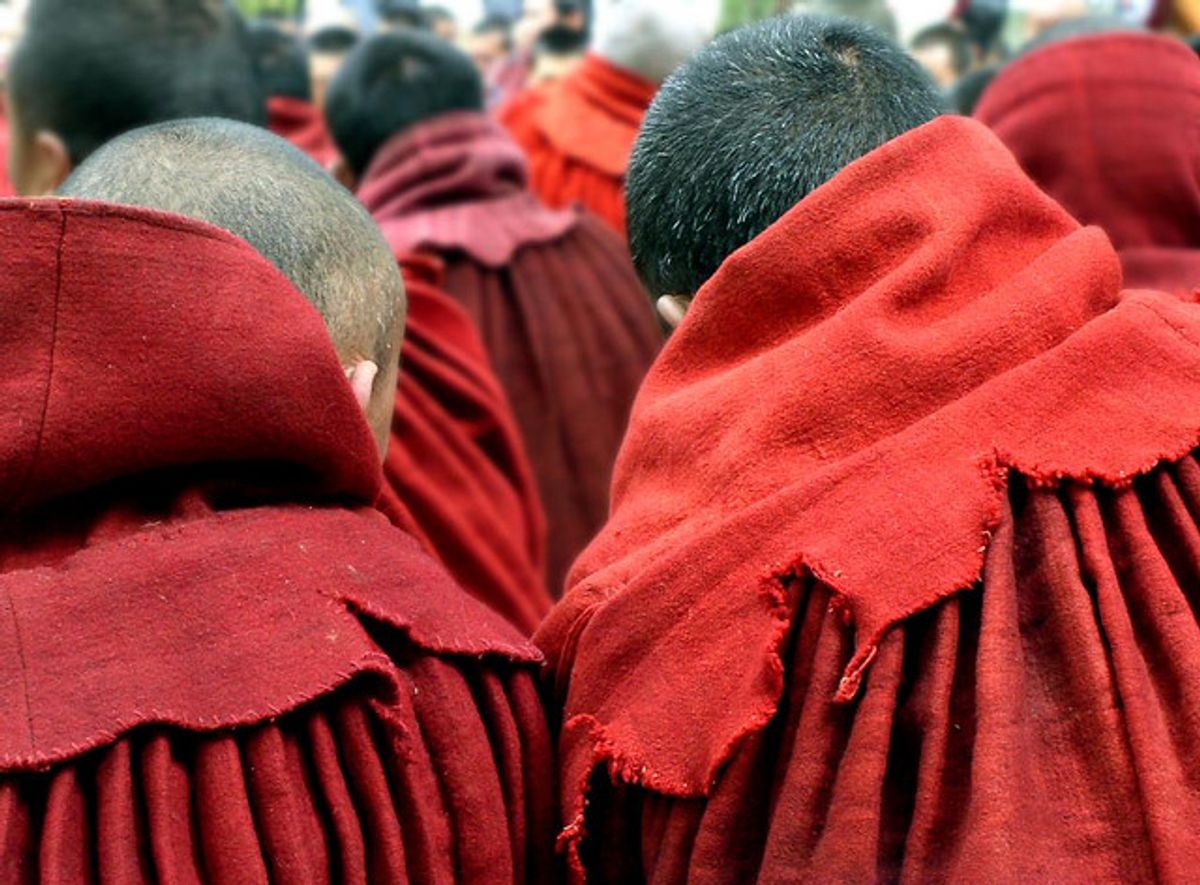BEIJING (AP) — A Tibetan Buddhist monk set himself on fire inside a western Chinese monastery recently singled out by authorities as a hub of the grisly self-immolation protests striking the region, reports said Sunday.
U.S.-backed broadcaster Radio Free Asia said Lobsang Thokmey, 28, was the 108th Tibetan to self-immolate in a string of protests against Chinese rule and religious restrictions starting in February 2009. His protest took place on the fifth anniversary of a 2008 government crackdown in the area in which police fired into a crowd, allegedly killing 10 people.
The monk set himself on fire Saturday inside his room in Kirti monastery in Sichuan province's mountainous Aba county, RFA said. Carrying a Tibetan Buddhist prayer flag, he ran toward the monastery entrance before collapsing and was rushed to hospital where he died, the report said.
A man who answered the phone at Kirti said the monastery was open to the public, but hung up when questioned about the self-immolation report. Calls to local government and police offices rang unanswered.
The London-based advocacy group Free Tibet also reported Lobsang Thokmey's self-immolation. It said a large force of security personnel at the county hospital had removed his body.
Earlier this month, Wu Zegang, the governor of Aba prefecture, accused monks at Kirti monastery of collaborating with exiled Tibetans, including spiritual leader the Dalai Lama, to organize locals to set themselves on fire. He offered no concrete evidence. The Dalai Lama and exiled Tibetans have said it is Beijing's repressive controls that drive the protests.
Like monks across Tibet and surrounding regions, those at Kirti have often been at the forefront of unrest following the 2008 uprising that was quashed by a massive and continuing show of force.
Chinese authorities have been at a loss to stem the self-immolations, despite the mass deployment of security forces and informants and other heavy-handed policies that critics have blamed for stirring further resentment.
Confirming claims long circulating among Tibetan activists, the official Global Times newspaper last week said that family members of those who self-immolate were barred from retrieving their relatives' bodies, while neighbors were not allowed to offer condolences and monks were barred from offering prayers for the dead.
Restrictions on religious activities have been tightened and monks wishing to take leave are required to apply to their monastery's government-run management office, said the paper, which is published by the official Communist Party mouthpiece People's Daily. Monks are already required to spend hours each week in Chinese "patriotic education" classes, taking up time usually devoted to religious studies.
Kirti is under especially close watch, with four vehicles belonging to the paramilitary People's Armed Police permanently stationed at its front gate, the Global Times reported. The area is off-limits to foreign journalists, making it impossible to verify claims about conditions inside.



Shares